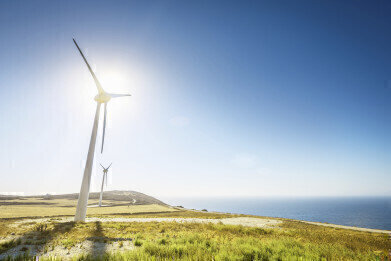Green Energy
UK Renewable Generation Offers Significant Opportunities for Investors
Jun 19 2013
Onshore and offshore wind generation in the UK are two of the strongest contenders for attracting funds from businesses and investors, according to the newest edition of PA Consulting Group’s Energy Investment Map, which launched this week.
The first online tool of its kind, the Energy Investment Map, rates the investment potential of 11 different renewable and conventional generation technologies, to give investors an overview of where they might search for the best opportunities. It also gives policymakers a valuable understanding of how their countries compare with others in terms of promoting different technologies and encouraging investment.
The newest edition of the map covers 30 countries in Europe, Asia Pacific, the Gulf, BRICS and the US to provide investors and policymakers with global insight.
The UK ranks 6 out of 30 in the map’s renewable energy index, which rates countries according to anticipated internal rates of return and associated risks, as assessed by PA Consulting Group’s energy market and regulatory experts.
The UK’s position in the index is boosted significantly by its score for onshore wind and offshore wind. Both technologies score at the highest level (150+ points) in terms of investment potential, a level achieved by only ten out of a total of 330 technology/country-specific opportunities assessed for the index
Despite recent improvements in the economics of conventional generation projects, policies favouring low-carbon generation have ensured that Western Europe remains a very difficult environment for investment in conventional power. This exemplified in the UK’s ranking of 12 in the map’s conventional energy index. Investment in conventional generation in the UK is rated overall as offering only relatively low to moderate IRR, accompanied by a moderate level of risk.
Of the four conventional generation technologies included in PA’s analysis, nuclear and CCGT gas score highest in terms of investment potential in the UK.
Mark Livingstone, energy expert, PA Consulting Group, confirms: “Global investors and international funds are showing significant interest in the UK’s energy infrastructure assets, largely due to the planned closure of existing thermal and nuclear generation and the policy support for new low-carbon options offered by the Energy Bill, which has now completed its passage through the House of Commons. While wind isn’t the only low carbon generation option, it is one resource that the UK clearly has in abundance.”
China heads PA’s renewable energy index due to a combination of extensive, high-quality renewable resources (and the potential for their development) as well as government support that provides attractive pricing for renewable energy. Other countries appearing in the top tier include Sweden, Denmark and Austria.
Countries on the Arabian peninsula, appearing for the first time on PA’s Energy Investment Map, are making significant progress in developing their renewable energy strategies. United Arab Emirates (ranked 20) boasts the region’s first renewable energy framework, while developments in Saudi Arabia (22) and Qatar (24) mean all three countries can be expected to rise steadily in the index over the coming years.
Many of the top countries for investment in conventional generation are characterised by fast-growing demand for power, combined with regulatory regimes that enable long-term contracts or other mechanisms to provide investors in new projects with secure cash flows and returns. India tops the ranking driven by a massive demand for new conventional power capacities. Poland (2), the Philippines (3), Turkey (7) and Saudi Arabia (10) all fit this pattern, with demand in some countries such as Turkey and Saudi Arabia being driven by the need for flexible conventional power to support ambitious renewables programmes.
Olaf Remmler, energy expert, PA Consulting Group, says: “Uncertainty, complex market and regulatory conditions and the rapid advance of renewable technologies all mean decision-makers must place far greater emphasis on understanding not just fundamental market conditions, but the regulatory and economic factors that will affect their projects and investments.”
Events
Elmia Water and Wastewater Fair - POSTPONED
Sep 24 2024 Jonkoping, Sweden
Oct 01 2024 Ljubljana, Slovenia
Oct 01 2024 Dubai, UAE
Oct 05 2024 New Orleans, LA., USA
Oct 09 2024 Birmingham, UK










